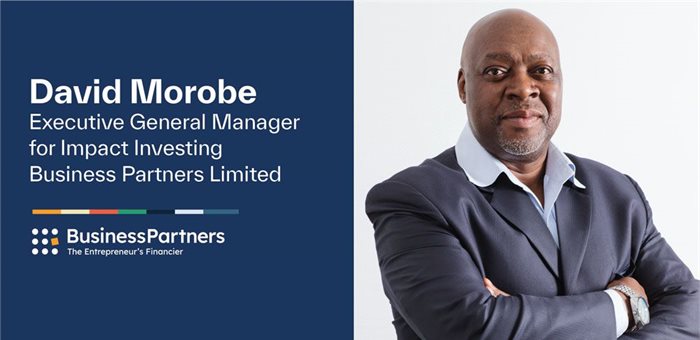
Top stories






More news


Marketing & Media
Ads are coming to AI. Does that really have to be such a bad thing?














“For SMEs,” says David Morobe, executive general manager for impact investing at Business Partners Limited, “the best way to prepare for the year ahead is to remain agile. Business owners need to be ready for plan A but keep plan B (and C) in your pocket, so that viable alternatives remain close at hand should you need them.”
In short, SMEs are urged to buckle up for a bumpy ride. And as always, stay true to the reputation of the proudly South African brand of entrepreneurship, which has proven to be decidedly resilient.
“Experts remain conflicted about what this year will hold for South Africa,” explains Morobe, “the topic of recession seems to feature in the minds and conversations of economists, who predict that the knock-on effects of the unstable geo-political climate, tensions in Europe and load shedding will sour South Africa’s chances of post-pandemic economic recovery. Others are cautiously optimistic, pointing to the resilience of the local mining and manufacturing sectors as indicators that South Africa will continue its modest climb upwards.”
However, as experts agree, there are many moving parts – the progress of energy self-generation, the state of freight rail infrastructure, decisions around the basic income grant and political developments in the lead up to next year’s elections and their subsequent impact on the economy. These aspects of socioeconomic development remain in limbo as the country waits for signs that positive change is indeed on the horizon.
However, Morobe points to a few certainties that will continue to make a positive impact on the SME sector in 2023 and for which entrepreneurs can reasonably prepare.
These are the trends to keep an eye out for:
Where the cost of production is concerned, SMEs will face headwinds from multiple directions. Rising interest rates will bump up the cost of credit and inflation will see the cost of living continue to climb, placing increased pressure on consumer budgets. Petrol hikes will also put more strain on SMEs, impacting both personal and business operations.
“For SMEs,” says Morobe, “the key to overcoming this hurdle will lie in strategic pricing, with customers becoming more cash-strapped, the price of goods and services has to strike the perfect balance between remaining competitive in the market and maintaining a healthy level of profitability. Now might be the ideal time to enlist the help of a business strategist or pricing expert to ensure that your product or service can withstand the prevailing cost pressures.”
Banks and other traditional financial institutions will remain relatively risk averse as we make our way through 2023, given the challenges they face on the socioeconomic front. However, FinTech disruptors, independent lenders and non-bank risk SME financiers will continue to provide SMEs with viable funding alternatives throughout the year.
“Small business owners should explore their options and weigh up the pros and cons of realities such as higher interest rates, profit-sharing transactions, negotiations that involve investors becoming part-owners and longer, more flexible financing terms.
The key is to brush up on your negotiation skills and invest time and resources into drawing up a business plan that is compelling and attractive to potential investors.”
With social media platforms like Instagram and WhatsApp making substantial investments into bolstering their e-commerce functionality, social commerce will take centre stage in the year ahead, especially for small businesses who may not have large marketing budgets.
“SMEs will need to have a dedicated person (or two) for live interactions with customers via social channels or risk missing out on crucial conversations, and the chance to optimise client service and centricity. With the increasing integration of brick-and-mortar retail and various forms of online retail, taking an omni-channel approach to marketing and selling goods and services will be the best way to enhance your SME’s success in the months ahead,” concludes Morobe.